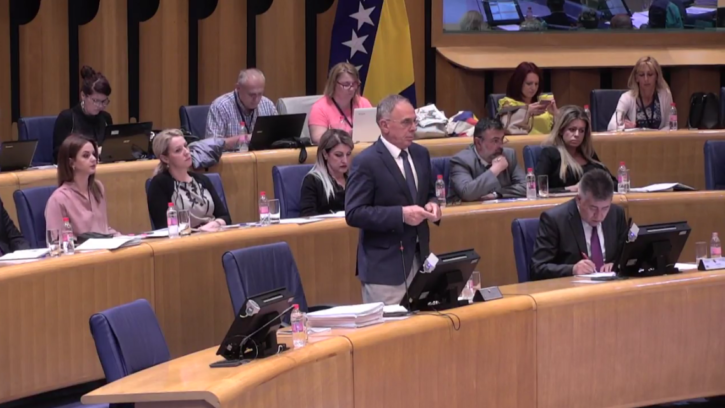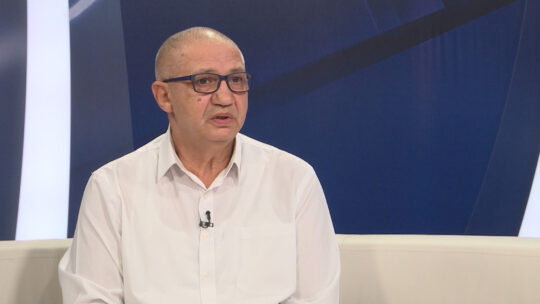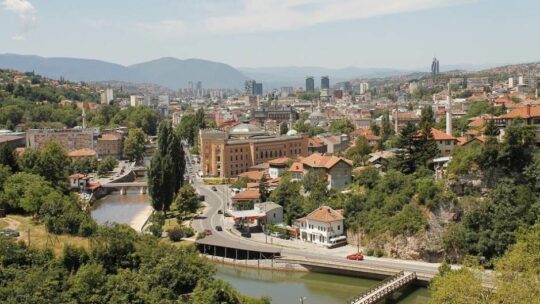
Bosnia’s House of Peoples (HoP) decided against officially condemning an insulting tweet posted by the Deputy Speaker of Serbia’s Parliament, who ridiculed the death of an activist from Srebrenica who lost her sons and husband in the 1995 genocide.
The Deputy Speaker of Serbia’s Parliament and member of the ultra-nationalist Serbian Radical Party (SRS), Vjerica Radeta, took to Twitter on Tuesday and posted the controversial tweet.
“I read that Hatidza Mehmedovic from the association of Srebrenica businesswomen has died. Who is going to bury her? The husband or sons?” she wrote.
The tweet was later deleted.
“The monstrous ridiculing of the biggest tragedy that could happen, with the amount of evil within it, has insulted all victims and all who are disgusted by evil. This is why the HoP should react,” said MP Halid Genjac, from the Bosniak caucus, who proposed that the Parliament should condemn the tweet.
“Removing such a person from the collegium of Serbia’s Parliament is an obligation that must be met for the development of good relations between Bosnia and Serbia,” he said.
But a member of the Serb caucus, Sredoje Novic, said that “it is unnecessary to introduce more hate and conflict than this country already has.”
Novic pointed out that Serbia’s Parliament Speaker, Maja Gojkovic, has apologized for Radeta’s statement and that 41 Serbian parliamentarians have already requested Radeta to be removed from her post. It was unnecessary for Bosnia to “teach lessons”t o a parliament of another country.
Genjac replied that he does not intend to “teach lessons” to anybody, but that Bosnia’s Parliament should condemn Radeta “for the sake of the improvement of cooperation” with Serbia’s Parliament.
The Serbian Radical Party Vjerica Radeta belongs to has repeatedly disputed the genocide in Srebrenica and called it a hoax.
Mehmedovic lost two sons, Almir (18) and Azmir (21), as well as her husband Abdulah (44), in the 1995 massacre but returned to her hometown in 2003. She ran the ‘Mothers of Srebrenica’ association, raising awareness about the massacre in Srebrenica, often referred to as the worst crime committed on European soil since WWII.
She advocated for the perpetrators to be brought to justice for more than 20 years.
On July 11, 1995, Bosnian Serb forces overran the eastern Bosnian enclave and rounded up the town’s Muslim Bosniaks, separated men from women and little children and systematically executed some 8,000 men and boys.
Two international courts, The International Criminal Tribunal for the Former Yugoslavia and the World Court later ruled that the massacre was an act of genocide.




